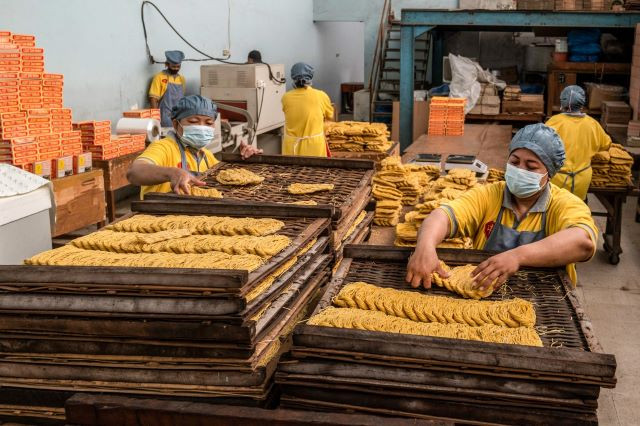Popular Reads
Top Results
Can't find what you're looking for?
View all search resultsPopular Reads
Top Results
Can't find what you're looking for?
View all search resultsForestry Ministry to reopen log export market to boost price
The Forestry Ministry is deliberating the reopening of the export market for logs after a request from the Association of Indonesian Forest Concessionaires (APHI), which complained about the current low price of logs and the limited markets available
Change text size
Gift Premium Articles
to Anyone

T
he Forestry Ministry is deliberating the reopening of the export market for logs after a request from the Association of Indonesian Forest Concessionaires (APHI), which complained about the current low price of logs and the limited markets available.
Logs from industrial forests are currently priced at US$30 per cubic meter ' compared to the regional price of $80 per cubic meter ' as local production only circulates in the domestic market, making the price uncompetitive.
Forestry Ministry secretary-general Hadi Daryanto said on Monday that the ministry would set up an international market for logs from industrial forests to boost the price, but added that 'everything would have to be discussed first with related stakeholders'.
'The development of industrial forests is sluggish due to the low price; therefore, we need to open the markets to elevate it,' Hadi told reporters.
As stipulated in the 2011-2030 National Forestry Master Plan, the ministry's aim was to alter 14.5 million hectares of the country's degraded forests into industrial forests by 2020. As of February, 5.7 million hectares had been planted.
The government's target to develop 500,000 hectares of industrial forests since 2011 fell short, as it could only realize 68 percent (374,425 hectares) in 2011 and 80 percent (399,744 hectares) last year.
'We expect the opening of the export market [to be an] incentive for the development of industrial forest concessions. However, we have to conduct thorough discussions with related stakeholders first, considering our past experience of rampant illegal logging and illegal log trading following the IMF's [International Monetary Fund] suggestion,' Hadi said.
The export ban on logs was lifted in 1998 under the letter of intent signed with the IMF to give the government space to change forestry policies.
The policy led to looser monitoring and in turn illegal logging and trade, which resulted in the deforestation of up to 3.5 million hectares of forest per year.
The government introduced a number of regulations in 2001 to restrict log exports and further curb deforestation.
Hadi said the government would scrutinize the plan thoroughly to avoid a repetition of past experiences and would guarantee that only logs from industrial forests were exported, and export gateways would be limited.
To dispel concern over a lack of supply in the domestic market, Hadi said the ministry would only export eucalyptus and acacia wood not used in the production of local furniture.
Purwadi Suprihanto, head of the APHI, said that opening the export market would not lead to illegal logging and trading ' as in the past ' because the government had mandated the Timber Legality Verification System (SVLK) for timber exportation.
The government introduced the certification in part to curb rampant illegal logging in Indonesia in 2010.
The SVLK gave Indonesian producers greater access to the global market as it guaranteed that the timber and its byproducts were sourced in an environmentally friendly manner.









